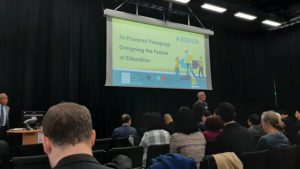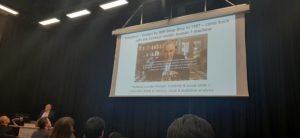Over the 2023-24 academic year, CAVA’s Promotion and Recruitment Working Group (PRWG) has met four times to discuss how different providers are promoting and recruiting for the Access to HE Diploma. Over the year, 13 providers have attended the meetings.
Engagement and Collaborations
PRWG have discussed the different ways to enhance promotional strategies for the Access to HE Diploma. This has included sharing case studies, digital assets and alumni stories to enrich marketing materials. Each session encouraged sharing of best practices and networking opportunities with members from higher education institutions and local colleges, especially in the fields of sustainability, AI, and adult learning.
Marketing Innovations and Events
This year CAVA has highlighted a range of promotional material including Diploma sites, Diploma packs and the Retention and Recruitment handbook. Within these materials, there is crucial information on sustainability and using artificial intelligence (AI). We have actively promoted all of our Diplomas through various channels, including social media, where our spotlight posts highlighted individual Diplomas across the year.
Providers have prioritised events in their outreach efforts. From open evenings to webinars and special events like mock trials, our colleges utilised every opportunity to engage with potential students and the broader community. These events not only raised awareness but also provided a platform for direct engagement with the Access to HE Diploma.
Challenges and Solutions
Recruitment remains a challenge within the evolving educational landscape and broader economic pressures. PRWG members discussed the impacts of the cost of living crisis and mental health issues on student retention. Because of this, CAVA has created the Recruitment and Retention handbook, which contains a range of case studies, to support providers facing these issues. This will be updated with more recent case studies from the 2023-24 academic year.
Looking Ahead
As we move forward, our focus will remain on supporting providers to increase their marketing opportunities, enhancing the visibility and appeal of the Access to HE Diploma. We will also continue to focus on topics such as AI and sustainability within marketing and share good practice across our different platforms.
If you are interested in joining CAVA’s PRWG, please email Georgia Green, our communication and events officer, at g.green@cava.ac.uk.






